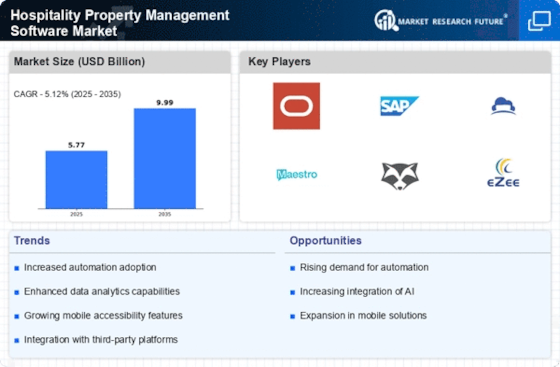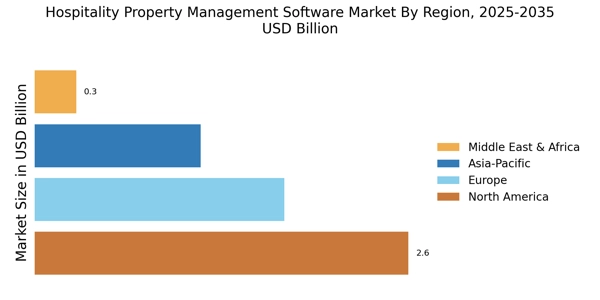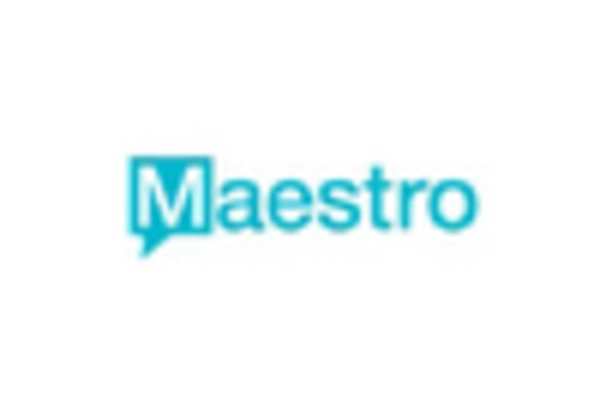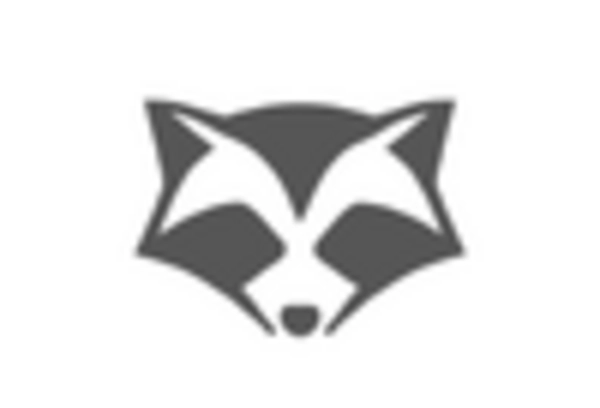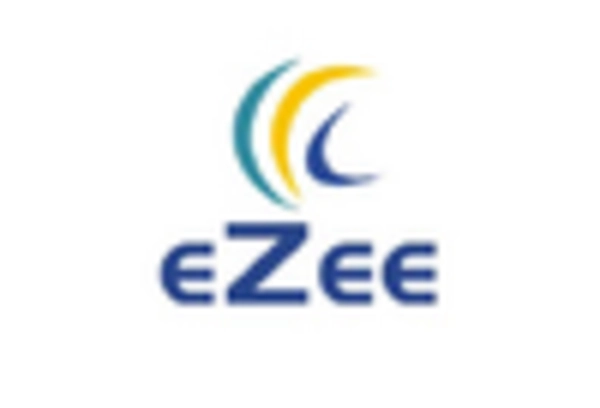Expansion of Mobile Technology
The expansion of mobile technology is significantly impacting the Hospitality Property Management Software Market. With the proliferation of smartphones and mobile applications, hospitality providers are increasingly adopting mobile-friendly property management solutions. This shift allows for greater flexibility in operations, enabling staff to manage bookings, check-ins, and customer interactions from mobile devices. Data suggests that properties utilizing mobile technology experience a 25% increase in operational efficiency. The growing reliance on mobile solutions is likely to drive further innovation in property management software, as providers seek to enhance user experience and streamline operations through mobile capabilities.
Growing Focus on Sustainability
Sustainability is emerging as a critical driver within the Hospitality Property Management Software Market. As environmental concerns gain prominence, hospitality providers are increasingly seeking software solutions that support sustainable practices. This includes energy management systems, waste reduction tracking, and carbon footprint analysis. Recent studies indicate that properties implementing sustainability initiatives can see a 10% reduction in operational costs. The growing emphasis on eco-friendly practices is likely to influence the development and adoption of property management software that not only enhances operational efficiency but also aligns with sustainability goals, thereby appealing to environmentally conscious consumers.
Integration of Advanced Analytics
The integration of advanced analytics within the Hospitality Property Management Software Market is becoming increasingly prevalent. Hospitality providers are leveraging data analytics to gain insights into customer behavior, operational efficiency, and revenue management. This trend is underscored by the fact that properties employing data-driven decision-making strategies can achieve up to a 15% increase in revenue per available room (RevPAR). By utilizing analytics, hotels can optimize pricing strategies, forecast demand, and enhance marketing efforts. The ability to analyze vast amounts of data in real-time is likely to drive the demand for sophisticated property management software that can seamlessly integrate these analytical capabilities.
Increased Investment in Cloud Solutions
The increased investment in cloud solutions is a prominent driver in the Hospitality Property Management Software Market. As hospitality providers seek to reduce IT costs and improve scalability, cloud-based property management systems are gaining traction. These solutions offer flexibility, allowing properties to access their management systems from anywhere, which is particularly beneficial for multi-property operations. Recent market data indicates that cloud-based systems can reduce operational costs by up to 30%. The trend towards cloud adoption is likely to continue, as more hospitality businesses recognize the advantages of cloud technology in enhancing operational efficiency and data security.
Rising Demand for Enhanced Guest Experiences
The Hospitality Property Management Software Market is witnessing a notable shift towards enhancing guest experiences. As consumer expectations evolve, hotels and other hospitality providers are increasingly adopting software solutions that facilitate personalized services. This trend is driven by the need to offer tailored experiences, which can significantly influence customer satisfaction and loyalty. According to recent data, properties utilizing advanced property management systems report a 20% increase in guest satisfaction scores. This growing demand for enhanced experiences is likely to propel the adoption of sophisticated software solutions that integrate various functionalities, such as booking management, customer relationship management, and real-time feedback mechanisms.


